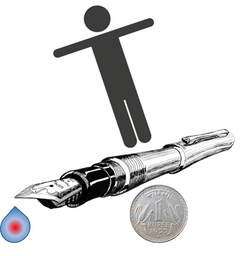|
I love your washing machine. And I love your refrigerator.
Over the last two decades, when one got too old, replaced it with another from you. Again. And again. Loved the products based on actual use. Therefore, loved the brand. Except in the recent past. I understand old machines can breakdown. But then you have been so considerate to extend your care to your customer over WhatsApp. Or so I thought. “Please confirm your name.” I am presented a wrongly spelt version of my name. “Are you a dealer or a customer?” Huh? “Provide full address.” I do that. But must again reconfirm the LOCATION, the CITY, and the STATE. Yes, in all CAPS. “Describe your model.” “When did you buy it?” “This is out of warranty. You will have to pay X amount.” I have an AMC in place. “Provide details.” As I scramble to dig out the details … “Are you still connected? As I am not getting any response from your end I am bound to close this chat. Thank you for chatting with Xxxxxxxxx. Have a nice day!” Hey, wait! What about all those times you asked me to wait and vanished to do God knows what, while I held on. Three calls within a month. All following the same pattern. Technology is smart. Just from the mobile number, it can dig out all information including your last service request. That is the optimistic theory for the gullible. Tech must have a poor memory, though. Why else do I have to provide the same details in virtually the same sequence during every chat? Even if the chat is repeated within a span of 30 minutes? Of course, there must be a script at the other end that must be honoured. Who dares face the consequence of breaking the sequence! Until you buy, we woo you. After you buy, shut up and don’t bother us. If you dare complain, well, we’ll simply Whirl you, fool!
0 Comments
How to write right? I put that question to her. She is a wiser, older writer, who never misses an opportunity to tell me between the two of us she is always “righter”. “In what you do, what is right writing is what your client says is right,” she banged her fist on her palm, as was her habit if there was no table within reach. As Messrs. Wren, Martin and Roget had played a major role in shaping two of my three R’s, it was not easy to accept her assertion. Yet, she did have a point. Long ago, when covid would have probably been highlighted as a spelling mistake, I was surprised by a call from Hong Kong. That was my first overseas client happy to have me WFH (another spelling glitch then). We worked happily for about two years. One day, he abruptly told me the boss was not happy with my writing. “Too direct, almost impolite.” Soon, they moved on and he (now a friend working elsewhere) revealed that the boss had changed—the American was replaced by someone from the UK. Was it just a matter of the difference in nationality? Could we have solved it simply by UK-ing US English? Apparently, there was a change in temperament too. Conclusion: You may spend hours sharpening it, but a change in nationality and personality can snap the lead, just like that! Now I am quite used to both extremes. “Your writing is too simple. Can we have some strong words?” “Your writing is too complex. Please simplify.” I simply comply. When writing is your work, write what works. A new book, Writing for Busy Readers, reviews The Economist, has very simple advice: cut unnecessary words, stick to “bedrock vocabulary” and follow simple syntax. The book goes on to give proof of the preaching. Simply deleting half of the paragraphs in a fundraising email increased donations by 16%. Reducing the words from 127 to 49 in an emailed survey increased the response rate from 2.7% to 4.8%. Public companies that used long sentences and complicated words to state their ethics code were seen as less moral and trustworthy. Phew! Short and sweet it has to be then? What happens when the first-level contact at the client’s throws your content on the scale to weigh the “content”? How many are fortunate enough to deal directly with the would-be author to understand them and their authentic tone well enough to make the draft a “good to go” at the very first instance? Of course, without interference from chatty intermediaries and GPT! Short, easy words definitely have their place but not for all. This “sesquipedalian” Member of Parliament (MP) is known less for what he says than for the words he uses to say that, whether you understand or not be damned. That’s his brand, what has made him famous. An old friend, an ageless writer and veteran communications professional, had the opportunity to compliment this MP after the latter had addressed a gathering. “Thank you for elevating this discussion to crepuscular altitude and suffusing it with intellect of refulgent luminosity.” Incidentally, this friend’s first book will be published soon. When he told me about it, I suggested he should title it Condiment-laden Camellia sinensis decoction for the neshama. He refused. Must be the influence of the new wave. He has given it a title all too simple and short: Masala chai for the soul. In my early days as a writer for hire, the lack of a degree in literature used to push their eyebrows up and my chances down. As the decades passed, another missing qualification emerged to replace the academic shortcoming—haven’t written a book yet, have you? I may have encouraged or helped many write a tome, but the fact remains there is no book out there in my name, neither the version that evokes bibliosmia nor the one that stays behind a screen until clicked to life. Friends persuade. You have written so much, why not put it all together in a book or two? Flattering as it is, I share a secret: it’s all out there already in bits and pieces. Why go through the pain and pay a price for booking it all? That’s when they give up, accusing me of laziness, arrogance, and hypocrisy! Does he know anything about building a brand? Says he is a writer, but doesn’t want to write a book, bah! Maybe I am being a hypocrite when I encourage and help those clients (and friendly ex-clients) to write the book that is bursting out of their heads and hearts. But at least once I actively discouraged someone. The draft of his blog had ended up being a bit too long. Within hours he was planning the events and locations where he would display his first book. I doused his enthusiasm by ruthlessly editing the piece and converting it into three posts. You guessed it, he is no longer a client. Though he does remind me on the rare occasions we connect that together the three posts had garnered some 5,000 likes. No doubt suggesting that the book would have sold an equal number of copies, if only …. By the way, Mark Richards of Swift Press, says in The Economist, that 5,000 copies is the break-even point for a book. That is the number a writer should target to reach base camp from where one can hope to glimpse the best-seller peak. Anyone can book now Time was when you would be rejected by publisher after publisher. I used to imagine a whole lineup of serious-looking editors trying to inject English into the manuscript (after clearance by the marketing team). Can you write good, readable English? Can you sustain a plot? Are you relevant, famous, or both? Will they pay a price to read what you write? Every question needed a positive answer, before the book could see daylight. Or so I used to think. Now, as Abhi Singh puts it, there are no gatekeepers. You are not screened and selected by a publishing house. A lot of us have always wanted to be an author even when it was not easy. Now that publishing a book is as simple as going to the right website and clicking on the best package, there is a rush to stuff your words between the covers and put it out there. In the past, says Abhi Singh, “publishing one paper book would cost so much you would have no money left for sending out a new one. Now it’s just bits in the ether and cost nothing.” Talk of publishing e-ase! Today, publishing a book is all about branding. If your head is chockfull of ideas and you just need a plumber (ahem!) to get the words flowing, you can hire one and also all other sorts of help (if your publisher does not offer those). You may not even need to step out of your room (where you have your computer) until it is time to launch your book and sign a few copies. And once that is done, never miss an opportunity to suggest that you are an author, which if you do it right often enough, would become synonymous with “I am an expert”. A book matters, but ... Before you rush to the conclusion that I am anti-book, let me correct you. As long as you are clear about the why and what of your book, I will be the first to cheer you. Imagine you surprise me with a copy of your first book. Days pass after all the congratulatory backslapping. As promised, I get back to you after I read the book. The silence gets awkward when I ask a simple question, purely as your reader-friend: “Why did you write this book?” I have had to painfully put up with that silence more than once. What makes things worse are the justifications that follow and the accusations of my being disloyal and needlessly skeptical. Then there is this friend who has occupied the top echelons of management in places that normally figure in the shadow regions of newspaper headlines. You may ignore his management wisdom but there is no ignoring the weight of the life he has experienced in difficult situations. He remains a consultant not to fill his coffers but to fund a foundation that supports budding entrepreneurs. “I want to write my autobiography. No grand book. Just to pen my experiences in some form, somewhere. I want my family and friends to gain from what I have learnt. I have nothing to preach, but a lot to share. Hopefully, that will help someone, sometimes. Just to discover their answers within themselves.” In his case, the target is not fame or brand building. You will hardly spot him on social media. His book, whatever form it takes may not make it anywhere near the bestseller list. Yet, he has a good cause for writing the book. Which gives it a good chance to succeed, regardless of where it ends up on this list or that. Your cause may be sharing your Wodehousian humor. Or telling a fantastic story that entertains. As long as you are clear, I think you should go ahead and take the plunge. If you are keen to share some management wisdom or 25 tips about a niche domain, please pause a moment to consult Mother Google just to know what is already out there. And to ensure you can be different, if not unique. As to the process of publishing, a word of caution. Recently, I read a self-published book by someone who has founded an institution to support a humanitarian cause. There were so many proofing errors and layout glitches that what ought to have been a good, moving series of stories had been reduced to an annoying distraction. I did not have the heart to recommend the book to anyone, lest it discredit the author and hamper the cause. Apparently, the writer had used a “self-publishing package” suggested by the publisher. Another writer (a national figure) was castigated by a much-published veteran for using a “cheap” publisher and made to republish the book under a more reputed name because the book deserved it. So, not just the writer, the publisher matters too. Pick someone who aligns with your thinking and has something more substantial to offer than projections of revenue and reputation. The randomness of it all Publishing, the knowledgeable say, is a strange, unpredictable world. Not every bestseller might be recommended reading from the perspective of your English professor. William Thackeray dismissed popular novels as “jam tarts for the mind”. However, in publishing, the hits are what sustain the business. You must have read Danielle Steel. Her 200-plus books have sold over a billion copies! As Catherine Nixey writes in her piece in The Economist, Steel’s novels are “a literary sediment, settling on the shelves of holiday cottages everywhere.” Many are the (would-be) authors who would attempt to Chandrayaan the moon, just to become such sediment! What is the formula then to make your book a hit? The wise say there is no formula or magic. Apparently, that is how the publisher Random House got its name. Again, as The Economist reports, in the words of Markus Dohle, the boss: “Success is random. Bestsellers are random. So that’s why we are the Random House.” Jonathan Karp, the chief executive of Simon & Schuster, thinks taking credit for a best seller is “like taking credit for the weather”. In 2018, Northeastern University researchers analysed almost eight years’ worth of New York Times bestsellers and came up with some tips for aspiring writers: fiction (thrillers and romance especially) sells better than non-fiction; if you must pen a non-fiction, stick to a biography; and, it really helps if your name is known. Any lessons from the bestselling authors? They are prolific, says The Economist. Danielle Steel writes until her nails bleed. Fleming recommended writing 2,000 words a day and not to sully this with “too much introspection and self-criticism”. James Patterson has churned out more than 340 books (some in collaboration with other writers). The mantra then is, “Don’t get it right, get it writ”. Bleeding nails? Just get it writ? Hmm, I am not sure. What do you think, Mr. Shakespeare? If you were to do it now, would Midsummer Night have remained just that, a Dream? Or, without Much Ado, would you have simply unleashed a digital, self-published Tempest? CREDITS
Text: https://www.economist.com/culture/2023/08/25/how-to-write-a-bestseller; https://www.quora.com/profile/Abhi-Singh-1489. Graphic: https://natlib.govt.nz/records/40382902; https://www.vecteezy.com/png/9399398-old-vintage-book-clipart-design-illustration; https://www.clipartmax.com/download/m2K9A0b1i8N4i8N4_books-for-clip-art-books-clipart-png/ You must read if you wish to write. If you are a writer, you must find your reader. You must weigh your words to deliver maximum value. Early lessons.
I started reading early with no ulterior motive. That crept in soon after the professor checked my essay on the college canteen. You are a good writer, she said. Be at it, she advised. She went to on to make me a part of the editorial team of the junior college magazine. I had arrived, I was sure. Then I found myself standing at the college gate pleading with all who entered to take a cyclostyled (yes, that used to be a thing) copy of The Junior Rag. The idea is to find your readers, and for that you must go to them, my teacher had said. All I could find was juniors and seniors alike treating the Rag as just that. For the next few days, I stayed clear of the waste bins and random flying bits of paper. During my year in journalism college, I respectfully approached the instructor. I was carrying a sheaf of painfully typewritten pages. On the pages were words sure to pull readers to the resort I was helping sell. It was my first step into the exotic world of copywriting. He flipped through the pages as if he were looking at some animation. Then he casually transferred the bunch from one hand to the other as if weighing the pages. “you can expect to get …” he mentioned a price, gave me a patronizing pat, handed the pages back dropping some in the process and moved on. More recently I cleared out a huge stack of yellowing newspapers from the attic. Each carried a story with what was once rarely obtained, my byline. Explosive exposures, tearful tales, faithful facts. All by a writer who had, as my boss once put it, “strayed” into journalism. The scrap dealer dumped all the bundles on a large weighing scale, checked the weight and counted out the compensation. No, I did not linger for another backward glance. Today, when yet another potential client asks me to quote my price per word, per page or per hour, I revisit my early lessons. Then I weighed every word because I valued the reader. Now the buyer weighs content that must be optimized to be found. All of us like surprises, at least the pleasant kind. Even when lit up screens have pushed printed pages to the background, you can delight your reader if you add a bit of wit to what you write. More so in the heading. “Mosquitoes ‘play’ menace at Bal Gandharva, people ‘clap loudly’... to kill them!” screamed a headline just this morning. Bal Gandharva is a popular auditorium in the city where I live. “Instead of artistes, the mosquitoes had taken centre stage,” the report went on to say. When a famous cricketer passed away recently, wordsmiths gave it a real tweak: “He took us for a spin, left without a Warne-ing.” Of course, when you have been a famous cricketer, the pitch condition can disturb your stance even when you are alive: “Imran Khan c Constitution b Supreme Court of Pakistan.” Technical glitches can get unappetizing for food delivery apps, especially when the media add a dash of spice: “Hungry users fume as Swiggy, Zomato take a ‘lunch break’.” NSFWHowever, witless use of words can backfire. When a decomposed limb was found in a playground, and the police had no clue, a tabloid boldly announced: “LEG STUMPED”. While the play on stump was, perhaps, not lost on the readers, many found it insensitive, even morbid. Yes, a little twist can get attention. But your readers must immediately grasp the context. They must not only spot but also appreciate the play on words. If there is even a whiff of controversy, it can raise hackles. The ensuing debate may overshadow the substance of your message. Which makes it a tricky tool to use in the office, definitely not safe for work. In the head office of the bank, where I used to work a long time ago, it was routine to send reminder letters to branches. It was my job to prepare the template, change the number of the reminder (REMINDER No. 5) and submit it to the officer for signature. Nothing ever changed except the number. Not that it mattered to the recipient who hardly bothered to respond, even if the number reached double digits. A young new officer took charge and decided to freshen up things. And I was happy to be his partner in crime. This is the reminder he sent, probably the shortest in the bank’s history. Within days there was some very officious uproar about the breach of “protocol” and violation of the bank’s “style of correspondence.” I do not remember if that reminder managed to get the report it was seeking. But, for a long time, even a little note from that officer got immediate attention from everyone. His boss pleaded with him to use “normal English.” And they transferred me.
Yes, go ahead and give it a twist if it gives you a kick. But make sure all will get it, and none will be upset. Else, you will end up with snubbed toe. Some of the best communicators I have met have taught me that you are truly big when you communicate small. You get up from your plush designation, push aside the corporate façade, slide down the hierarchy banister and stoop to talk and connect with a simple, solitary individual. Enduring connectionThere was this owner of a group of companies, a true monarch of the market. He would look everyone in the eye, greet by name and enquire about the immediate family. Last I ran into him, some four years after our last meeting, cruel circumstances had reduced the monarch to a pauper. But he still greeted me by name, asked about my wife by name, named both my sons and correctly guessed their grade. He remains a communication king in my heart. Of course, not everyone is blessed with that kind of memory. However, if you think it is important to communicate small, you will find a way. Tech helpThe CEO of one of the country’s largest companies used his secretary and his laptop to communicate small, big time. I helped him with a few templates. Just by adding a name and changing a few words, he would convert each into a very personal communication to suit every occasion—from congratulations to condolences. Before he started a telephone conversation or his secretary ushered in a visitor, his database would bring up the gist of their last exchange—personal and professional. Goes to show you can’t blame technology for the all-pervading disconnect. Use it right and it can help you connect—if it matters to you. True healing touchShe was not just a doctor, but a demigod. I was sceptical. She treated the same diseases and prescribed the same drugs as every other doctor. Yet, people loved her and stayed put in her waiting room for hours. Why? I realized the magic was not in her stethoscope when I was with one of her patients. She was 30 minutes late and my friend was in serious pain. Just then, he received a call. It was the doctor. She apologized, explained the delay, and told him when she would reach. That call acted like a placebo. My friend settled down comfortably for a longer wait. That doctor’s reputation and her healing touch was as much in her prescription as in the small, thoughtful communications like that one-minute call. Back the patTalking of calls, I can never forget the Monday when I got one from a very senior executive of a client organization. My regular contact was about five levels down the hierarchy, so this was a surprise. He told me that the presentation I had helped his team make was very impressive and did its job well. That one-minute call made my week. The irony? My contact never bothered with mundane things like feedback. Unless, of course, I had made a Himalayan blunder. Or what was needed yesterday till a minute ago, was now required the previous week. Months later, when I ran into the big boss, I told him how his call had had such a positive impact on me. He had no clue what I was talking about. But he shared a secret. “Someone told me a long time ago that you should never miss an opportunity to pat someone on the back for a genuine reason. And you must do it without delay. I just try to follow that always.” Back the pat to work wonders. Grace under complaintI wish my bank would grow up to be big one day. I had emailed a complaint about a wrong charge. When there was no response even a week after the promised 48 hours, I followed their protocol and took up the issue with “higher authorities.” Four days later, someone from my branch called. “Did you check your account before you escalated the problem?” he sounded very irritated with me. “The issue was resolved two days before you complained higher up.” But no one told me the problem had been resolved. Else I would not have bothered to escalate the issue. And am I supposed to monitor my account every minute? “When you escalate any issue, the branch must answer. I have to answer.” Did he want me to apologize? “You should understand customer complaint emails are handled by a different department,” he growled. All he had to do was tell me the issue was resolved. Instead, he made it amply clear that me the small customer was being a nuisance to him, the busy boss of a big bank packed with so many departments. Talk beyond scriptMy internet service provider, on the other hand, is beginning to cheer me up. I am used to tiring cut-paste email responses and scripted answers when I post a complaint. This time I had almost given up even before sending an email. Surprise! A live human being, who knew my name and my problem called up to admit they had not figured out a solution yet. Two days later, he called again to say that the company had sorted out the issue and went on to share his personal number, in case I faced the problem again. Admitting a problem, taking the initiative to make a call and conducting a conversation with a small, solitary customer, without a script. Yes, my ISP has suddenly grown big in my eyes. Maybe it helps to have a degree in language. However, effective communication often requires simple schooling in making a proactive connection. A version of this was first published here on February 15, 2017.
The customer, David Ogilvy warned in 1955, is not a moron, but your wife. Today, the harem is packed with millions and technology has provided a zillion contact points, but do some companies hold on to a moronic mindset? Free, subject toThe bank emailed me that my credit card was eligible for a “premium” upgrade. All I had to do was go to netbanking and “confirm” the upgrade. I started doing that and then aborted when the annual fee field of my “lifetime free” card automatically filled with an amount. When I got yet another reminder about the “upgrade”, I emailed them for a confirmation that my credit card would remain “free” even after the upgrade. Sifting through the chaff in the reply I received after a couple of days, I found one sentence relevant to me. The upgrade was “subject to” my signing up for a service. And I was asked to call up “phonebanking”. I wrote back requesting a specific answer—was the upgrade free or not? Received a longer response restating the “subject to” and yet another helpful link to locate my phonebanking number. I did not ask for the upgrade. You offered it. And are all your bankers too busy or too shy to call me and tell me about the upgrade condition upfront? Definitely not a wife, I must be a moron to my bank. Can't connect, can't helpDay after day, the range was too poor to make or receive a call. So, I called up customer service. “How many bars can you see?” Huh? Oh, that! I just see a triangle with an exclamation mark. “Where do you face this problem?” At home. “Please give me your address.” “We are upgrading our towers in your area. Your problem will be resolved by (specific date). Please rate my response.” An email followed that reiterated the same assurance. When you can anticipate a problem, why wait for the customer to complain? Why not email those who are most likely to be affected? Or at least publish an announcement? A few days later, I receive an SMS and an email. “We tried to contact you three times. You were not reachable. The issue is now closed.” Doesn’t your inability to reach me validate my persisting problem? Or is it just a good excuse to silence another moron? The youngster at home advised: “Go to settings and switch from 4G to 3G.” It worked and still does. The resolution the company promised is yet to materialize. Huddled in an invisible corner of the harem, I imagine an email: “While we are working to upgrade your 4G service, we request you to switch to 3G so that you can continue to enjoy our uninterrupted service. This is how you can do it ….” That dream helps me hold on to the notion that my husband cares for me. They don't care for wivesSorry, David! They don’t much care for wives now. Could you please advise them to appoint a custodian to mother all customer communications? Even morons respond to sense and sensitivity. All we need is to find a system to fit a mother into the process.
|
AuthorVijayakumar Kotteri Categories
All
Archives
July 2024
|










 RSS Feed
RSS Feed

